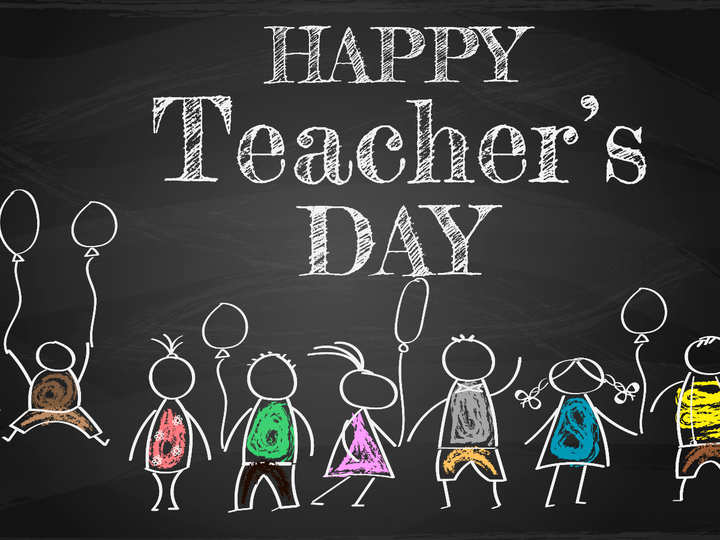INCULCATING
READING HABITS IN TECHNOLOGY DRIVEN ERA
IMPORTANCE
OF READING
Reading is important because it develops the
mind. Understanding the written word is
one way the mind grows in its ability. Teaching young children to read helps
them develop their language skills. It also helps them learn to listen.
Reading is important because it
develops our thoughts, gives us endless knowledge and lessons to read while
keeping our minds active. Reading books to help us learn and
understand and makes us smarter, not to mention the knowledge, vocabulary and
thinking skills we develop.
Benefits of Reading: Why You
Should Read Every Day
When was the last time you
read a book, or a substantial magazine article? Do your daily reading habits
center around tweets, Facebook updates, or the directions on your instant
oatmeal packet?
If you’re one of countless
people who don’t make a habit of reading regularly, you might be missing out.
Reading has a significant
number of benefits, and here’re 10 benefits of reading to get you to start
reading.
1. Mental Stimulation
Studies have shown that
staying mentally stimulated can slow the progress of (or possibly even prevent)
Alzheimer’s and Dementia] since keeping your brain active and
engaged prevents it from losing power.
Just like any other muscle
in the body, the brain requires exercise to keep it strong and healthy, so the
phrase “use it or lose it” is particularly apt when it comes to your mind.
Doing puzzles and playing games such as chess have also been found to be
helpful with cognitive stimulation.
2.
Stress Reduction
No matter how much stress you
have at work, in your personal relationships, or countless other issues faced
in daily life, it all just slips away when you lose yourself in a great story.
A well-written novel can transport you to other realms, while an engaging
article will distract you and keep you in the present moment, letting tensions
drain away and allowing you to relax.
3.
Knowledge
Everything you read fills
your head with new bits of information, and you never know when it might come
in handy. The more knowledge you have, the better-equipped you are to tackle
any challenge you’ll ever face.
Additionally, here’s a bit
of food for thought: should you ever find yourself in dire circumstances, remember
that although you might lose everything else—your job, your possessions, your
money, even your health—knowledge can never be taken from you.
4. Vocabulary Expansion
This goes with the above
topic:
The more you read, the more
words you gain exposure to, and they’ll inevitably make their way into your
everyday vocabulary.
Being articulate and
well-spoken is of great help in any profession, and knowing that you can speak
to higher-ups with self-confidence can be an enormous boost to your self-esteem.
It could even aid in your career, as those who are well-read, well-spoken, and
knowledgeable on a variety of topics tend to get promotions more quickly (and
more often) than those with smaller vocabularies and lack of awareness of
literature, scientific breakthroughs, and global events.
Reading books is also vital
for learning new
language as non-native speakers gain exposure to
words used in context, which will ameliorate their own speaking and writing
fluency.
5. Memory Improvement
When you read a book, you
have to remember an assortment of characters, their backgrounds, ambitions,
history, and nuances, as well as the various arcs and sub-plots that weave
their way through every story. That’s a fair bit to remember, but brains are
marvellous things and can remember these things with relative ease.
6. Stronger Analytical Thinking Skills
Have you ever read an
amazing mystery novel, and solved the mystery yourself before finishing the
book? If so, you were able to put critical and analytical thinking to work by
taking note of all the details provided and sorting them out to determine
“whodunnit”.
That same ability to
analyze details also comes in handy when it comes to critiquing the plot;
determining whether it was a well-written piece, if the characters were
properly developed, if the storyline ran smoothly, etc.
7. Improved Focus and Concentration
In
our internet-crazed world, attention is drawn in a million different directions
at once as we multi-task through every day.
In
a single 5-minute span, the average person will divide their time between
working on a task, checking email, chatting with a couple of people (via gchat,
skype, etc.), keeping an eye on twitter, monitoring their smartphone, and
interacting with co-workers. This type of ADD-like behavior causes stress
levels to rise, and lower our productivity.
When
you read a book, all of your attention is focused on the story—the rest of the
world just falls away, and you can immerse yourself in every fine detail you’re
absorbing.
8. Better Writing Skills
This goes hand-in-hand with
the expansion of your vocabulary:
Exposure to published,
well-written work has a noted effect on one’s own writing, as observing the
cadence, fluidity, and writing styles of other authors will invariably
influence your own work.
In the same way that
musicians influence one another and painters use techniques established by
previous masters, so do writers learn how to craft prose by reading the works
of others.
9. Tranquility
In
addition to the relaxation that accompanies reading a good book, it’s possible
that the subject you read about can bring about immense inner peace and
tranquility.
10. Free Entertainment
Though many of us like to
buy books so we can annotate them and dog-ear pages for future reference, they
can be quite pricey.
For low-budget
entertainment, you can visit your library and bask in the glory of
the countless tomes available there for free. Libraries have books on every
subject imaginable, and since they rotate their stock and constantly get new
books, you’ll never run out of reading materials.
WHAT DO WE READ?
Newspaper & Supplement
Text Books
Story Books
Novels
Religious Books
Magazines
Professional Books/Journal
Biography and Autobiography
Encyclopedia.
ROLE OF A TEACHER
The primary role of a teacher is to deliver
the classroom instruction that helps students to learn effectively. To
accomplish this, teachers should prepare effective lessons,
grade student work and offer feedback, manage classroom materials, productively
navigate the curriculum, and collaborate with other staff.
METHODS
·
Orientation of
Teachers
·
Library activities
·
Teacher based
activities
·
Open Access System
·
Project work method
·
Book Review/Scrap
books
· Class Library
Orientation of Teachers
Due to the advancement in science and
technology , changing scenario in teaching learning process teachers have to
equip themselves with current knowledge and latest information. So they need to
visit the library often for abreast with recent developments in their concerned
subject and others . This creates a effective teaching and healthy impression
on students and encourages students to visit the library.
Celebration of Library week
·
By
celebrating National Book Week (14th to 21st November )students are exposed to
the tremendous world of knowledge. Organizing book Exhibitions, Quiz on books
& authors, Face to face interaction with eminent writers, Organizing visits
to book fairs & hi-tech libraries.
·
Mobile
van Library of NBT&CBT
·
Organization
of World Book Day .( 23rd April)
·
all
these activities will increase their thirst for knowledge. Teacher-based
Teacher-based
Activities
• Story-telling sessions
• Book-Banks& News Letter
• Book Quiz-competitions
• Book-reviews/Book Talks
• Animating stories/e-Educational Channel
•
Drama
• Public-Speaking
• Group-Discussions
• Story-Making Sessions
• Extracting/Abstracting
• Audio/Video sessions
• Poetry
•
Communication Skills Workshops
Open access library
Open access provides a close relationship
between the reader & the read. The reader can easily browse through the
books. While browsing, he can find many more titles of his interest, which increase
his visits to the library.
PROJECT WORK METHOD
Students should be given more & more
library oriented projects. Projects which require full use of library resources
like current periodicals, books, encyclopedias etc. By this students are
exposed to the tremendous world of literature. Curiosity to know many more
things is ignited in their mind which makes them voracious readers.
Book review method
Students may be asked to write book reviews
for the books read from the library. The students who read maximum number of
books & variety of books may be awarded book review prize during the annual
day celebration. This acts as an incentive & encourages the students to
read more & more books.
Class library
Primary classes class(I to v) library will be set up. These libraries
will be under the charge of class teachers our class teacher will get books
from the main library which will be in accordance with the standard and
interest of age group of the children of the class concerns .They should be
attractively display in lockable cells and kept in the class. The Teacher will
issue books to the children during library period .After this books have been
read another set would be issued from the main library .The primary teacher
would maintain a register regarding issue of books to the students so that he
can keep track of the books read and student are not given books they have
already read .
The teacher will issue books to the children during class library
periods.
After this book has been read by the students another set of books
should be issued from the main library.
The primary teacher would maintain a register to record the details of
the issue /return of books to the student ,so that he can see track the
circulation of books and student’s reading behavior. Books may be issued to
students of class VI and V with proper instruction about it care.
The selection of book for the class library shall be done by committee comprising of H.M., library and two primary teacher and two students who will be nominated by the H.M.
The class teacher will ensure that every people in the class maintain
in notebook in which the name of the books read and a brief account of the
contents recorder
Out of the two library period allotted one period shall be used
exclusively for reading children magazine .for this multiple copy of the magazines
shall be procured from the main library.
The class teacher may conduct activities such a story telling, read
aloud, book talks/discussion ,competition( book review writing reading story,
telling news reading, book jacket ,bookmark ,poster designing developing story etc)
assembly program(book review stage conversation based on the book theme ,dramatization
puppet) award best reader of the class exhibition display preparation of wall
magazine scrapbook ,etc.








No comments:
Post a Comment